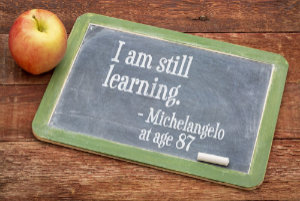Group Wellness Coaching Class - Outline
Course Purpose: Our purpose is to provide a forum for students to further develop their skills and expand their scope of practice. In this 30-hour training, Health & Wellness Coaches will learn the core concepts of group coaching and how to effectively integrate core health and wellness coaching competencies to working with groups.
Prerequisites (one of the following):
- Completion and Certification from of a Health & Wellness Coach Certification Program
- Pending Real Balance Health & Wellness Coach Certification
- ICF Certification and demonstrated interest in Health & Wellness Coaching
- Skills Required to Successfully Conduct a Wellness Coaching Group
- An understanding of:
•Core coaching skills as applied to group coaching
•Group dynamics & process
•How adults learn
•Integration of experiential learning and education
•Group design skills
•Group facilitation Skills
•Dealing with challenging situations & self-management in the group context
•Best practices for group coaching
Training Outcomes:
•Participants will gain knowledge of:
•The application of core coaching skills in groups
•Group stages, dynamics & process
•Setting the group foundation
•Assessing audience, focus, venue, and structure
•The application of adult learning and experiential learning in group coaching
•Integrating health & wellness coaching essentials
2
• The essentials components for the group and group sessions
• Dealing with challenging situations and self-management
• The design and evaluation of a health/wellness coaching program
• Participants will have a foundation in:
• The essential requirements for creating and implementing effective wellness/health group coaching program
• The integration of behavior change practices and core competencies for effective group coaching
• Participants will gain experience through:
• The design and delivery of a group wellness coaching session followed by feedback
• Participants will gain experience through the design of a group wellness plan.
Requirements to Complete this Course
• Completion of 28 in-class hours. Up to 4 hours (2 classes) of missed class time may be made up by listening to the class recording and completing a questionnaire.
• 3 Peer Coach Collaborative Sessions focused on sharing ideas, brainstorming and feedback. The collaborative sessions follow chapters 4, 5 and 7 & 8 in the Manual. Each session is documented using the Collaborative Sessions Form, which is submitted to the instructor.
• Design and delivery of a group coaching session in class (the Practicum) followed by a debrief in class using the Practicum Feedback Sheet
• Completion and submission of a Health/Wellness Group Plan using the Real Balance Group Wellness Coaching Plan Design tool.
ICF Core Competencies applicable to the learning are:
• Embodies a Coaching Mindset
• Establishes and Maintains Agreements
• Cultivates Trust and Safety
• Maintains Presence
3
• Listens Actively
• Evokes Awareness
• Facilitates Client Growth
II. Course Structure
• There is a pre-call with each student to model best practice and to ensure clarity on the structure, requirements, and goals of the program. Students also have an opportunity to meet and greet the instructor on a personal basis.
• Each session includes didactic and experiential learning. Two or Three classes include guest speakers.
• Depending on the size of the class (maximum 10 students) student Practicums (where students lead a 30-minute group coaching session followed by a class debrief) are integrated into the following sessions beginning anywhere from class 5 forward.
Sessions 1& 2 - Setting the Foundation
1. Overview of the program
2. Create agreements, make introductions, ice breaker exercise, and set intentions/goals
3. Key wellness components/foundation
4. Differences between individual and group coaching
5. The 3 roles of group coaches
6. Listening skills (focused listening, global listening and attending to the field)
7. Coaching skills self-assessment
8. What was covered, learning styles included and student take-aways
Session 3 - Group Dynamics & The SCARF Model
1. Check-in
2. Communication Behavior and Conflict Strategy self-assessments
3. Explore the impact of inclusion/exclusion in groups
4. The stages of group evolution
5. How to facilitate effective movement through each stage
6. The application of the SCARF (Status, Certainty, Autonomy, Relatedness, Fairness – by David Rock) model in group coaching and its application at each stage of evolution
7. What was covered, learning styles included and student take-aways
Sessions 4 - Define Your Group Vision - “Design with the End in Mind”
1. Check-in
2. Exploration of students’ vision for group wellness coaching and for the coaching group
3. Establishing your vision, values, and mission
4. Group coaching Demo (led by the instructor)
5. What was covered, learning styles included and student take-aways
Session 5 - Working as an Independent Coach with a Guest Speaker
1. Check-in
2. The benefits & challenges
3. Important considerations
4. Getting buy-in and ownership from the
5. What was covered, learning styles included and student take-aways
4
Sessions 6 – Working Within an Organization with a Guest Speaker
1. Check-in
2. The benefits, challenges, and differences from independent coaching
3. Important considerations
4. Getting buy-in and ownership from the organization
5. The difference between buy-in and ownership from the organization and the group participants
6. What was covered, learning styles included and student take-aways
Sessions 7 - Identify Your Audience, Focus & Venue
1. Check-in
2. Know your audience
3. Defining your group focus – 3 essential categories
4. Assess the venue and structure
5. What was covered, learning styles included and student take-aways
Session 8 - Group Delivery Essentials
1. Check-in
6. Essentials for very group with a focus on setting the foundation and concluding the group
7. Essentials for every on-going session – key components
8. What was covered, learning styles included and student take-aways
Sessions 9 – Principles of Adult Learning and Integrating Experiential Learning
1. Check-in
2. How Adult learn
3. The intersection of ELM (Education Learning Theory) and Coaching
4. The importance of integrating experiential learning
5. What makes it stick
6. Integrating educational segments
7. The structure of experiential leaning and education learning
8. What was covered, learning styles included and student take-aways
Sessions 10 - Integrating Wellness Coaching Methodology
1. Check-in
2. A review of the key components of wellness coaching (i.e., identifying a well-life vision, assessing readiness for change, setting SMART goal setting, etc.) and integrating them into the group experience
3. Evaluating the group experience – for the group, the coach, and the organization as applicable
4. What was covered, learning styles included and student take-aways
5
Session 11 - Using Dr. Arloski’s Paths of Wellness Guided Journal Model with a Guest Speaker
1. Check-in
2. Guest speaker discusses using the journals from the perspective of a coach and of the client
3. What was covered, learning styles included and student take-aways
Sessions 12 – Managing Challenging Situations, Self-Management, Working with Co-Lead & Best Practices
1. Check-in
2. Explore different types of group challenges and strategies to address them
3. Explore self-management challenges and strategies to address them
4. Explore working as a co-lead
5. What was covered, learning styles included and student take-aways
Session 13 - The Essentials for Your Group Design
1. Check-in
2. Putting it all together /creating the group design
3. What was covered, learning styles included and student take-aways
Sessions 14 – Wrap-Up & Next Steps
1. Check-in
2. Review where we have been – what was covered
3. Revisit Coaching Self-Assessment and “Hopes, Fears and Fantasies” from session 1
4. Explore continuing options
5. Class evaluation
6. Closing exercise
6
III. Resources
Self-Assessments:
• Coaching Self-Assessment
• Communications Behavior
• Conflict Strategies
Tools:
1. Group Wellness Coach Vision tool
2. Third Party Considerations tool
3. Know Your Client tool
4. Focus Design tool
5. Venue/Structure tool
6. Group Evaluation Tool
7. The Group Design Template
8. Practicum Feedback Sheet
9. Collaborative Sessions Form













